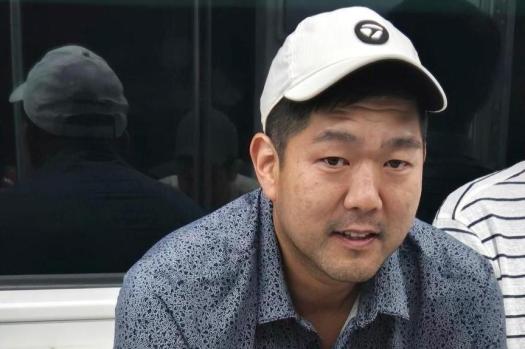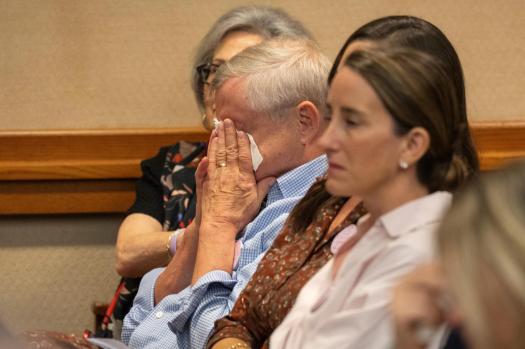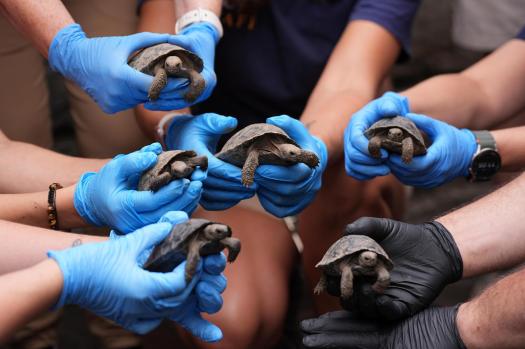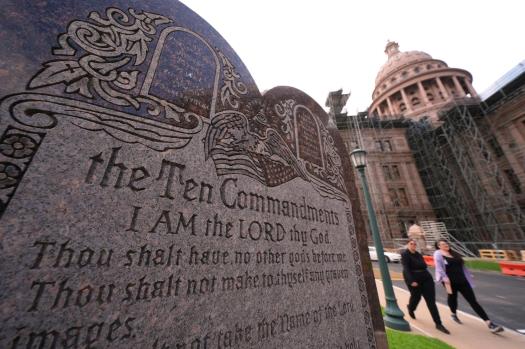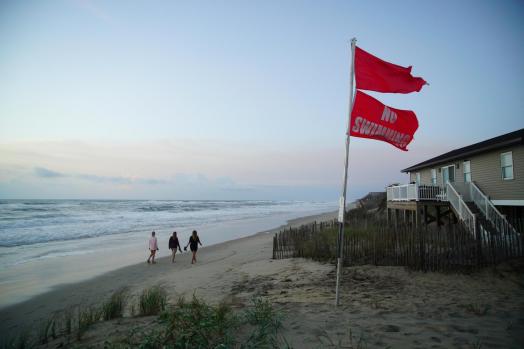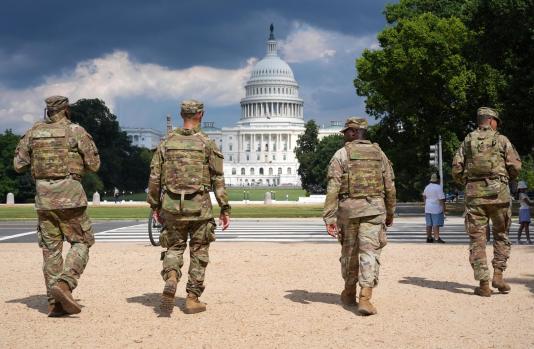Associated Press, by OLGA R. RODRIGUEZ and CHRISTOPHER WEBER
AP’s San Francisco Immigration officials kept a Texas A&M University scholar who was returning home from a foreign country for over a week at San Francisco International Airport, sleeping in a chair and subsisting on food supplied there, according to his family and lawyers on Thursday.
Related Articles
-
Judge blocks Trump administration from ending protections for 60,000 from Central America and Nepal
-
ICE says it has made tentative job offers to more than 1,000 as hiring ramps up
-
Pentagon pulls back more National Guard troops and leaves behind 250 in Los Angeles
-
Ohio city whose Haitian migrants were disparaged by Trump braces to defend them against deportation
-
Judge considers whether Alligator Alcatraz challenge was filed in wrong venue
Attorney Karl Krooth stated at a press conference that it was unknown why Tae Heung Will Kim, a lawful permanent resident with a green card, was arrested on July 21. According to Krooth, who has not yet spoken to his client, Kim, who traveled to South Korea to attend his brother’s wedding, is currently being held at an immigration detention facility in Arizona and is facing removal proceedings to be deported.
Any green card holder who has committed a narcotics offense is in violation of their legal status and may be detained, according to a statement from Customs and Border Protection. Kim was charged in 2011 with misdemeanor possession of marijuana in Texas, where it is unlawful to consume for recreational purposes, according to his lawyers.
On Thursday, his lawyers refused to comment on the accusations. However, he completed a community service obligation and was successful in his plea for nondisclosure to remove the violation from the public record, according to one lawyer who spoke to the Washington Post, which broke the story of Kim’s imprisonment.
President Donald Trump has pushed the boundaries of executive power and engaged in conflict with federal courts who are attempting to curb him in his unprecedented immigration enforcement effort since taking office again. Visa holders, visitors, legal permanent residents, and US citizens have all been stopped at airports and held for days. Some have been deported for minor offenses.
Since coming to the United States when he was five years old, Kim, now forty, has lived here. He recently started a doctoral degree at Texas A&M and is assisting in the development of a Lyme disease vaccine after helping out in his family’s doll manufacturing business after his father passed away.
Holding Kim at the airport, according to his lawyer, violated his right to due process.
The airport is not a place of confinement. The immigration courthouse is not the airport. Additionally, he stated that Customs and Border Protection officials are not impartial arbiters but rather interrogators.
According to Krooth, his client was transferred between two tiny rooms at the airport during the day.
According to Krooth, he was transferred from a windowless location to what is known as secondary inspection at least twice a day.
According to Krooth, he was transferred to a different room at night and slept in a chair. In an email, an airport representative stated that when CBP refuses a passenger admission, the airport is not informed and that questions are directed to federal authorities.
He was only given one phone conversation and sporadic texting with his brother while he was at the airport, and his lawyers were denied access to Kim. Since Kim was moved to Arizona, there hasn’t been any communication, Krooth stated.
Through an interpreter, Kim’s mother, Yehoon Sharon Lee, informed reporters Thursday that her son suffers from asthma and that she is concerned about providing him with appropriate medical care while he is in custody.
Lee told the Washington Post that Kim was too elderly to receive automatic citizenship by the time she and her husband became citizens, having arrived in the country on business visas in the 1980s.
It was from Los Angeles that Weber reported.
